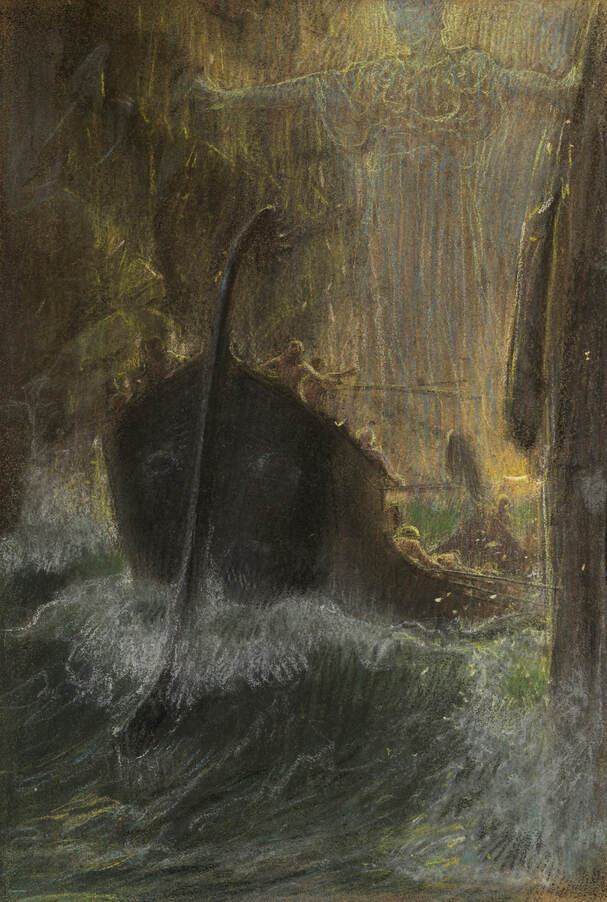One of the most suspenseful parts of Homer's Odyssey was the choice Odysseus had to make before sailing through the strait separating modern-day Sicily and Calabria. The strait was home to two potentially deadly maritime hazards -- the whirlpool known as Charybdis on one side and a six-headed monster known as Scylla on the other. Sailors who chose to circumvent Scylla risked passing too closely to Charybdis and vice versa.
In a nutshell, the chance of safe passage through the strait was close to null. Sailors who passed that way had to decide between two dangers and hope their choice was the right one. Odysseus was no exception. When facing this "devil or the deep blue sea" dilemma, Odysseus weighed the risks and decided to sail past Scylla instead of Charybdis. The decision cost him the lives of six sailors, but he figured that this terrible outcome was better than having a ravenous whirlpool consume all his men, his boat, and him.
Scylla and Charybdis presents a classical example of the lesser of two evils principle, also known as lesser evilism. From the perspective of morality, lesser evilism occurs whenever we must choose between two blatantly immoral options. The basic thrust of the principle is to discern and choose the lesser evil of the two options, in much the same fashion Odysseus chose Scylla over Charybdis.
Having said all that, I often have to remind myself that choosing the lesser of two evils when confronted with two immoral options is not the same as actively choosing good. Of course, if the choice for good were accessible, there would be no need to select the lesser of two evils.
Simply put, there are situations in life when good options become seemingly unavailable, and we are forced into a position of having to choose between two bad options. In circumstances like that, the only consolation we can hope for is a choice for lesser evil -- the consolation of knowing that the other option would have been far worse/more evil.
Yet this feeling of consolation must not translate into the belief that we chose good. We must be brutally honest with ourselves and acknowledge that our choice was still a choice for evil, albeit of an apparently lesser sort. This acknowledgement must then lead to repentance.
This whole business of being placed in situations in which the best choice we can make is to choose the lesser evil is situated deeply in "try men's souls" territory. It's treacherous terrain -- rugged and barren, haunted by ghosts of Abraham and Isaac. It's the sort of thing that can trigger a complete loss of faith.
After all, why would God -- our loving parent -- place us in circumstances in which we cannot make a positive and active choice for good?
The only answer I can offer is that God always considers what is best for us spiritually and works to arrange Creation in a way that provides opportunities for spiritual benefit and learning. God doesn't "place us" in situations on His own. Our innate freedom and agency play a part, as does the innate freedom and agency of all the other Beings in Creation.
With this in mind, it would appear that the greatest spiritual benefits lesser evilism can offer are discernment and repentance. Put another way, having to choose lesser evil presses upon us to acknowledge that the lesser evil is still evil, not good. Once we have made that acknowledgement, we can move on to repentance and take the step toward the Good.
On the flip side, the inherent dangers of lesser evilism lie in abandoning discernment and repentance or, worse, in redefining the lesser evil as "not really that evil at all" or, far worse, redefining lesser evil as actual Good.
Choosing Scylla over Charybdis is still a choice for evil. It must be repented. We mustn't trick ourselves into thinking or believing otherwise.


 RSS Feed
RSS Feed

